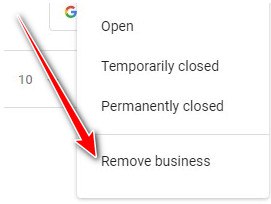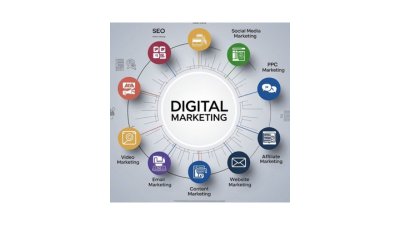Every day, I hear people say, “I want to start a business, but I don’t have the money”, or “I don’t have anyone to help me.” I get it, money is important. But let me be real with you: lack of money is not your biggest problem. In fact, it’s not even the first thing you need to worry about when starting a business.
In this article, I’m going to break it down for you. I’ll show you what you truly need to start, how to get help even if you’re broke and I’ll give you three practical ways to get funding with real examples of organizations that can support you, no matter where you are.
1. Start With What You Have – Your Idea is the Real Currency
Before you worry about funding, ask yourself: Do I even have a solid idea?
Your idea is the foundation. But even more important than the idea is how clearly you’ve developed it. That means:
- A clear business plan
- A working prototype or sample
- A basic version of the product or service that proves your concept
When you can show that your idea works, even on a small scale, people are more likely to support you whether with money, resources or mentorship.
2. Create a Business Plan (If You Don’t Have One, You’re Not Ready)
Let’s be honest if you don’t have a business plan, you’re not serious yet.
A solid business plan is the number one thing potential funders, partners or investors want to see. It proves that you’ve thought things through and that you understand what you’re doing.
If you don’t know how to write one, learn it online or better still, reach out to someone who can help. (In fact, I help people write executive-level business plans that have helped some raise as much as GHS100,000 in funding. Contact me if you want help.)
3. Three Powerful Ways to Get Business Funding (With Real Examples)
If your idea is solid and you have a business plan or prototype, here are three proven ways to get funding plus examples of actual organizations that can support you.
Option 1: Venture Capital
Venture capitalists are investors who fund startups in exchange for equity (ownership) or a return on their investment.
They typically invest in businesses that have already started and are looking to scale. If you’re ready to grow, this is a strong option.
Credible Venture Capital Options:
- Venture Capital Trust Fund (Ghana) – vctf.com.gh
- Oasis Capital (Ghana) – oasiscapitalghana.com
- Y Combinator (Global) – ycombinator.com
- MEST Africa – meltwater.org (They incubate and train startups, then link you to investors.)
Tip: Venture capitalists want to see a track record. Even if it’s small-scale, show what you’ve already done.
Option 2: Angel Investors
Angel investors are wealthy individuals or small groups who invest their own money in early-stage businesses.
They’re more flexible than venture capitalists and can come in even when you’re just getting started. They may also provide mentorship and connections.
Where to Find Angel Investors:
- Quick Angels (Ghana) – A well-known angel investor company that supports startups in various sectors.
Tip: Angel investors want to see potential and passion. Have a pitch deck, your prototype and a strong story.
Option 3: Startup Incubators and Accelerators
Incubators and accelerators offer training, mentorship and sometimes funding. They help you polish your idea, develop your business model and prepare you for bigger investors.
Examples:
- MEST Africa – Also acts as an incubator.
- Y Combinator – One of the biggest startup accelerators globally.
Tip: Most require you to apply and demonstrate your commitment. Be ready to pitch.
Finally, You Don’t Need to Wait – You Need to Start
Listen, I started small. Most successful businesses you see today started small too. Don’t wait until someone hands you money. Use what you have, your skills, your network, your time to build something. Even if it’s just a prototype, a sample or a small version of your idea.
When you start, help will come. But if you don’t start, no one will believe in a dream you haven’t acted on.
If you need more help, reach out to us directly through WhatsApp or Telegram or book a Zoom meeting with us via our website
FAQ
You can start a business with no money by beginning with what you already have your idea, skills and network. Build a simple prototype or offer your service on a small scale to prove your concept. Once you’ve validated your idea, you can attract support from mentors, incubators or investors who believe in your vision.
Before seeking funding, ensure you have a clear business plan, a working prototype, or early traction. Investors want to see that you understand your market, have a realistic plan and are already taking action. A solid business plan increases your chances of getting funding or mentorship.
In Ghana, startups can get funding from organizations such as Venture Capital Trust Fund (vctf.com.gh), Oasis Capital, Quick Angels, and MEST Africa. Global options like Y Combinator also support African entrepreneurs with capital and mentorship. Each program has different requirements, so research and apply strategically.
Venture capitalists (VCs) are firms that invest larger amounts in growing startups in exchange for equity. Angel investors, however are individuals who invest their own money in early-stage businesses, often providing mentorship and networking support. VCs look for scalability; angels focus more on potential and passion.
Startup incubators and accelerators provide mentorship, training and sometimes seed funding to help new businesses grow. They guide you in refining your business idea, building a prototype and pitching to investors. Examples include MEST Africa and Y Combinator, both known for nurturing high-potential African startups.

David Asaana is a Digital Marketer, Author and Entrepreneur with over five years of experience. He has worked with 4,000+ clients across Ghana, the USA, the UK and beyond, and his YouTube channel where he shares step-by-step tutorials on digital marketing and business growth has reached more than 1.8 million views.



